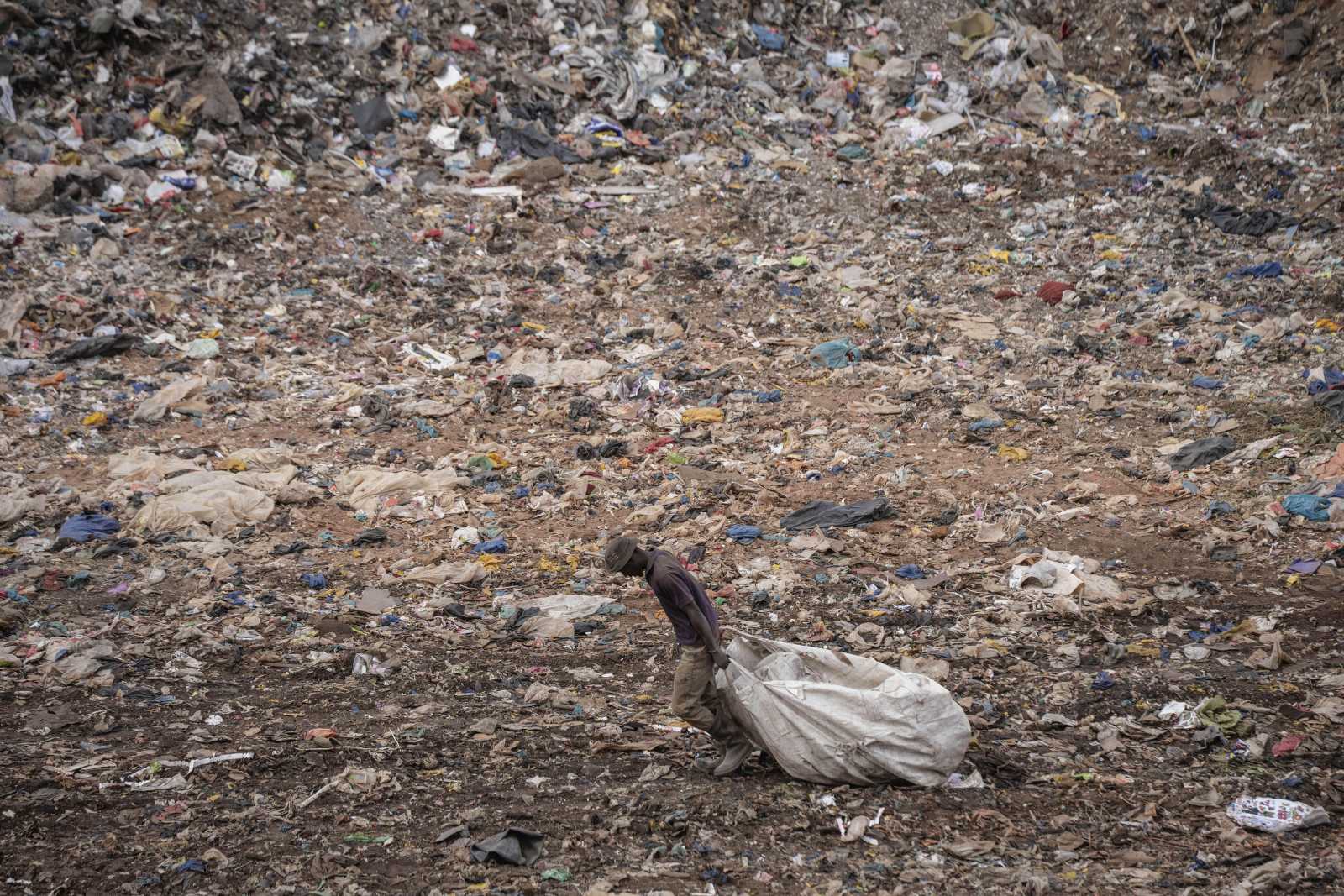Health care
“We didn’t do any miracles”
[ Interview with Zafrullah Chowdhury ]
At the Doha summit in 2001, the World Trade Organisation agreed to allow developing countries compulsory licensing for the production of patented pharmaceuticals that are essential for public health. So there shouldn’t be any shortage of such drugs. Why are they in short supply nonetheless?
Many developing countries, and especially the least developed ones, don’t have the technology to produce pharmaceuticals. Bangladesh is the only least developed country with a full-fledged pharma production capacity. The WTO rules on intellectual property rights allow us to manufacture essential medicines without restrictions until 2015. I hope the date will be extended until 2025. Least developed countries should not be forced to respect patents on medicines before that date.
But there are shortages in many countries today, even though WTO rules not only allow governments to grant compulsory licences at home, but also to do so abroad in order to import essential drugs.
In theory there should not be any problem with obtaining compulsory licenses for public-health needs. In my view, the World Health Organisation – WHO for short – has not done enough to promote the use of generic drugs. Many governments of developing countries still do not understand the issue. There is a WHO list of a little more than 300 essential drugs. That is what you need to treat most common diseases, and if you add another dozen or so, you will certainly have all the medicine you can possibly need. Of the drugs on the WHO list, 80 % are no longer covered by patents. Their supply doesn’t relate to intellectual property rights at all.
And for drugs that are covered by patents there is the option of compulsory licences.
Yes, of course, but matters are tricky. Generic drug production is not very attractive in commercial terms. It is probably not even viable in a country with fewer than 20 million people or so unless the government itself becomes the producer. Typically, raw materials will have to be imported. High registration fees, moreover, are a disincentive for Bangladeshi companies to register pharmaceutical products in many African countries where the population is too small to make it viable. But the greatest hurdle to compulsory licensing is probably that governments that want to use this tool have to withstand pressure from rich-nation governments that act on behalf of pharma multinationals based in their countries. However, the Thai government is an example of a firm stance yielding results. It started to produce anti-retroviral drugs that its nation needed to treat AIDS in a government-owned company early on.
So it can be done.
The truth is that many governments of developing countries lack the knowledge and human resources. Many politicians neither understand the technology nor the public-health implications. They don’t realise that, even though generic drugs are cheaper versions of the original drugs, they are just as good.
In Germany, government-run health insurances often insist on the use of generics because they are cheaper.
Yes, and that is no different in most rich nations. But consumers often want the brand-name products, and even many doctors believe that those pills are somehow better. In most developing countries, however, nobody promotes the use of generics as your government-run insurances do, while the multinational companies advertise their products. Many doctors simply keep on prescribing the medications they became familiar with when they were trained. So brand-name products tend to dominate markets even after patents have expired. As I said before, the WHO should do more to promote the use of generics. Unfortunately, it is focussing on the fight against counterfeit drugs instead.
But doesn’t that make sense? Counterfeited drugs are illegal copy-cat drugs, so they are probably unsafe.
Not necessarily, they may just as well be the same as generic drugs. You see, if a large multinational commissions a local manufacturer to produce a brand-name drug, it is quite tempting to run the same production facilities a little longer and dramatically boost profits. Those who are doing so will probably not think they are hurting anybody, and it is not that difficult to forge the packaging. Most counterfeit drugs in the world are made along the US-Mexico border, in Nigeria and India, where drugs are produced on commission for multinationals. The political economy of the matter is simple: brand-name drugs sell at much higher prices.
Please give an example.
A generic version of 400 mg of Ciprofloxacin, an antibiotic, will fetch 2.50 taka in Bangladesh and that price will include around 20 % profit. But if it is sold under the brand name, it will fetch 10, 12 or even 14 taka. Rather than reaping in 0.50 taka, the manufacturer can make up to 12 taka profit. That is the incentive. Cheap brand-name drugs like Paracetamol or Amoxicillin are not counterfeited, but high-price medications are.
Bangladesh has a strong pharmaceutical industry today thanks to the national policy that you helped to bring about in the early 1980s. What was the idea?
It was that a developing country should produce the essential drugs it needs domestically; we were following the example of Sri Lanka. In 1981, eight multinational companies controlled 85 % of our country’s pharma market, and the prices were incredibly high. We didn’t do miracles, we used common-sense. And it worked. The government and private-sector entities started producing pharmaceuticals, so essential drugs became affordable.
What rules did you introduce?
They were really quite simple, for instance:
– Drugs must be single-ingredient products because mixing active ingredients only makes matters more complicated, but does not improve impact in most cases.
– The raw materials, which are normally quite cheap, must be purchased at a competitive price, so one division of a company cannot sell ingredients on to another division of the same company at fantastic prices which only make sense in terms of the parent company’s overall profitability. This kind of transfer pricing was strictly prohibited.
– Companies that want to manufacture and sell drugs under their name have to have their own production facilities in the country. Multinationals were often using small local production units rather than building their own production facilities. The policy prohibited production under third party license. If they want to make profit, they have to invest in and transfer technology to Bangladesh
So things are going well in Bangladesh?
Unfortunately, some of the rules have been relaxed. In 1982, the government was put in charge of fixing drug prices. It considered production costs and generally allowed companies a 20 % profit. But since 1994, the policy was amended and the price-control mechanism now only applies to only 117 medicines, contraceptives and vaccines. For all other pharma products, the manufacturers indicate their desired prices and the government then adds the value-added tax only. Prices have skyrocketed. Pharma companies are making mega profits while consumers suffer. I consider this policy change a mistake.
Was it hard to convince your government in 1982?
There was some pressure from rich nation governments. Washington, London, Paris, Amsterdam and Bonn, for instance, wanted to protect the interests of the multinationals. But scientists and civil-society groups from the same nations supported our initiative. In the USA, we were backed by the National Academy of Sciences and Ralph Nader, the consumer activist, for instance. In Germany, Buko Pharmakampagne argued our case and so did churches. That kind of counter-pressure certainly helped us to convince our government.
How are your relations with multinational corporations today?
Back then, there were attempts on my life and attacks on Gonoshasthaya Pharmaceuticals at the time. Today, they are on friendly terms and are buying our raw materials. Looking back, they know that the national drug policy did not hurt them. It is true that their profit per pill has gone down and they can no longer manufacture harmful or irrational drugs, but Bangladesh’s market has grown dramatically, so they were all soon making more money after the reform than ever before.
In bilateral trade negotiations today, the governments of rich countries often insist on exclusivity of data, which means that the results of test trials for patented drugs would no longer be available to drug authorities for the licensing generics. All tests would have to be done anew.
This approach is unscientific and harmful. It must not be accepted. The licensing of generic drugs after a patent has expired is long established practice. There is no need to change it. And we must never forget that drugs are not just any other commodity. They are public goods because access to them can be a matter of life and death. That is why the WTO agreed to the concept of compulsory licensing.
Because of its huge generic drugs industry, India has become something like the poor world’s pharmacy. Is that a healthy state of affairs?
No, it is not. Let me repeat, generic drug production as such is not very attractive commercially. Private-sector companies are always tempted to move into the more profitable bracket that is covered by intellectual property rights. Even in India there are shortages of some essential drugs.
Multinationals have begun to buy generic producers in India. Does that mean that these companies will no longer provide generics to African countries?
No, they will keep on selling drugs to Africa, but their prices are likely to rise. More generally speaking, I doubt countries like India and Brazil, which were instrumental in bringing about the WTO decision in 2001, are still as interested in the matter as they were back then. The least developed countries really are on their own, they have to take care of themselves.
And your advice to their governments is to act with more self-confidence?
Yes, certainly. Generic pharma production is not high-technology, it is actually quite simple. If any government in a developing country wants to start a production line, Gonoshasthaya Kendra will be happy to provide the know-how and train staff free of cost, all they have to pay is our travel expenses.







